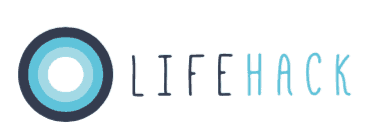Flourshing Fellowship: Hui Tuarua
Checking in to the mahi
Many different ideas came out of our second Hui, the fellows had been in a position where they can really start to delve deeper into the work, the understanding and the methods that they had learned so far. The main focus of Hui Tuarua was to convert from a theoretical approach to the work and into the action side of things.
Our fellows started the hui by checking in about what they had experienced after leaving the first Hui (which was five days long). Going back into their normal lives whilst still retaining the links with other fellows and the mission they had laid out before themselves was particularly hard after going through the immersive experience across five days at hui tuatahi, so being given the space to openly talk about their individual challenges was very welcome.
Our mission for this hui was to leave the fellows with an improved ability to explore self-reflection, a better ability to manage their own wellbeing, and be able to write up an experiment to investigate different ideas and concepts in their own communities. Translating this into the mahi that they’re embarking on means we’re wanting to give them the ability to self-manage the projects they’ve created in a healthy and sustainable manner. Lifehack is all about working in a way that takes yourself into account and ensures personal well being is at the centre of our work; this is done because we want to make sure we’re able to sustain our mahi.Open space
Living the mantra “working with, not for”, means that Lifehack’s approach to our programmes is create the content with the participants to make sure they have the ability to get what they want out of it. Additionally we work to make sure to improve on each version of the programmes we run through offering opportunities for people to offer feedback. To unpack the conversation during Hui Tuarua we held an open space, in which the fellows could have conversations that they wanted to have, wherein they came up with discussions around workplace wellbeing, and privilege and what to do with it. We found this an incredible way to allow for fellows to take ownership of the space that they were operating in as well as clear off what was on top for them coming into this hui. Further discussions around the glorification of busy, individual vs organisational change, proved to further their reflections of the work that our fellows were engaging in as well as give them a chance to discuss subjects with their peers that they are passionate about. Agile as a way forward
To gather as much learning from the mahi the fellows are engaging in, we want to make sure they make the most of all learning opportunities that present themselves, and how to manage all of that learning, enter the agile work process. We’ve just introduced the fellows to retrospectives so far, which is they can complete mahi in two week blocks and then have a framework to review at the end of that two week block. Embedding agile in the fellows’ workflow was a pragmatic decision based around giving them the best framework for ensuring success, and momentum. Breaking things down into bite-sized chunks across the weeks between the fellowship hui, and of course understanding what else is going on in the fellow’s lives so as to best fit this work in and around it, effectively an intro job sizing for the fellows and ensuring that quality of the work is a priority.
Embedding prototyping in our mahi
A huge part of how Lifehack learns from our mahi is through an experimental, iterative, prototyping approach. We had a few trusted provocateurs come in and work with the fellows to garner shared understanding on what a prototyping process looks like when they’re working in the realm of social change, how to do this well and how to retain ethics, quality, rigor and safe practices in their communities.Back into the wild
Our fellows are out in the wild working on their projects and bringing them to life using these techniques. One of our fellows, Fran, has just succeeded in gaining funding for her project to deliver teenage girls engagement in physical activity to increase their wellbeing, as well as continue to support two Upper Hutt youth trusts. Fellows such as Juila are stepping up and using Te Reo in their daily lives, Te Ao Maori values in their mahi, they’re constantly thinking of better ways to run a more well workspace. We can already see the ripple effects our Fellows are having on their own communities and through the practices they’re instilling in themselves and those around them by proximity.

